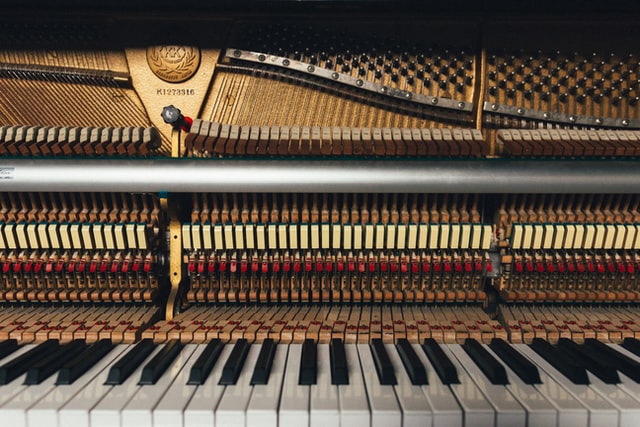Your Cart is Empty
Available in the USA, UK, EU, Japan and Singapore | International Shipping Available
A piano complete with a grand piano cover is a sight to behold. However, if you have an upright or grand piano at home, it's important to keep it in tune. An out of tune piano can sound quite jarring and make playing the instrument difficult. Tuning a piano is not a particularly difficult task, but it does require some skill and knowledge. In this blog post, we will discuss how much it costs to get a piano tuned, some of the factors that affect the price, and how to choose a good piano tuner. We will also provide some basic tuning tips on how to maintain your piano's tuning yourself!
If one or more notes on the piano are not in tune with the rest, it will sound discordant. This is why it's important to have your piano tuned regularly, at least once a year. A neglected piano can go out of tune very quickly, as tuning pins loosen and strings wear out eventually. Consequently, they may require more frequent tuning.
The cost of getting a piano tuned will vary depending on the location, the type of piano, and the experience level of the tuner. Generally, smaller pianos cost less to tune than larger ones. This is because they have fewer strings and are less complex overall. Piano tuners typically charge by the hour and according to their experience level. The location of your piano will also affect the cost of tuning. If you live in a rural area, it may be more expensive to have a tuner come to your house.
Piano tuning estimates may vary but in general, it costs around $100 to $200 total or $70 to $100 per hour on average depending on locations, and the age of piano. If your piano has not been tuned in a while or is severely out of tune, the price may be higher. It's also worth noting that grand pianos are typically more expensive to tune than an upright piano. This is because they are larger and have more strings. Some professional piano tuners may charge up to $300 for a concert grand tuning. You should contact your piano tuner for the latest price.
It is prudent to note that not all piano tuners are the same. As such, when looking for a qualified piano technician or tuner, it's important to consider their experience level and training. The best way to find a good tuner is by word of mouth. Ask your friends or family members if they know of any reputable piano technicians or tuners in your area.
You can also check online review sites like Yelp or Google Reviews to see what other people have said about the tuner. It's also important to make sure that the tuner is insured and has liability insurance. This will protect you in case of any damage that may occur during the tuning process.
There are a few things you can do to help maintain your piano's tuning. First, try to keep the humidity in your home consistent. If it is too dry, the wood of the piano will shrink and the strings will loosen. Conversely, if it is too humid, the wood will swell and the strings will tighten. You can use a humidifier or dehumidifier to help regulate the humidity in your home.
Another thing you can do is avoid playing the piano when it's cold outside. The strings will contract in cold weather, which can cause them to go out of tune. In addition, you should cover your piano with a grand, upright or baby grand piano cover to protect it. Finally, make sure that you don't bang on the keys when you play. This can cause the strings to loosen over time.
The cost of tuning a piano can vary depending on various factors like the size and type of piano, as well as the location. There are also a few things you can do to help maintain your piano's tuning and keep it going well for years to come!
